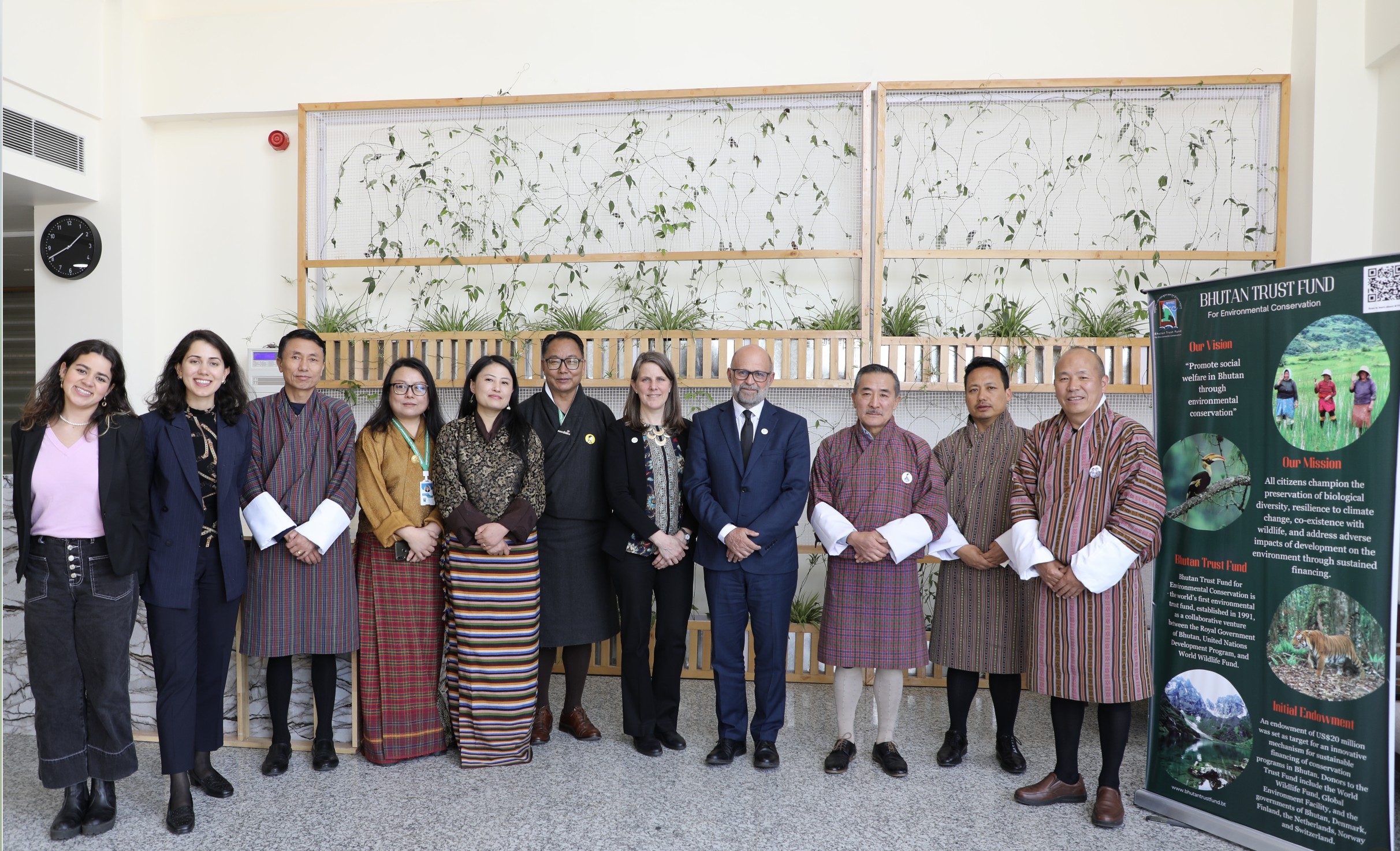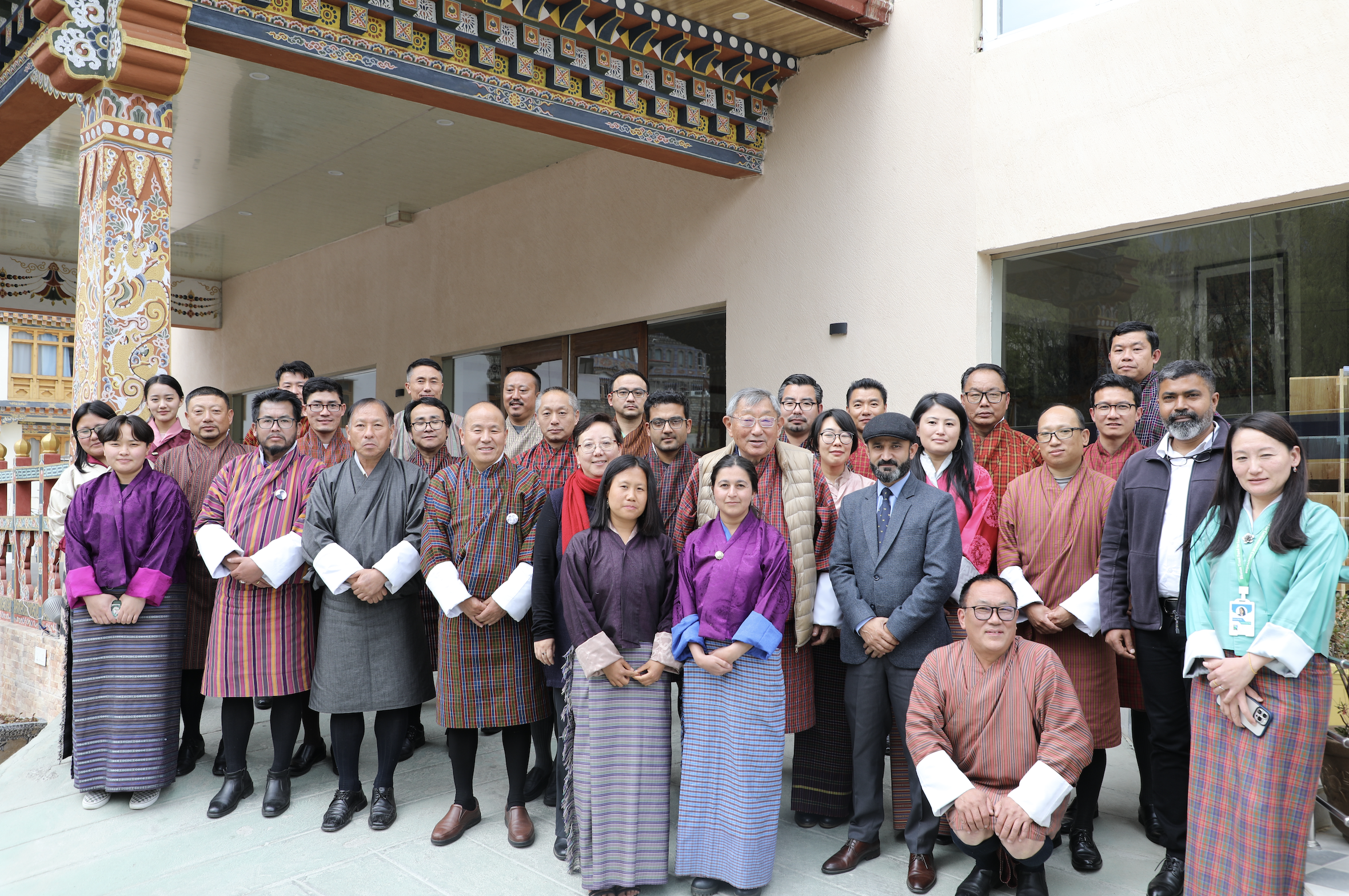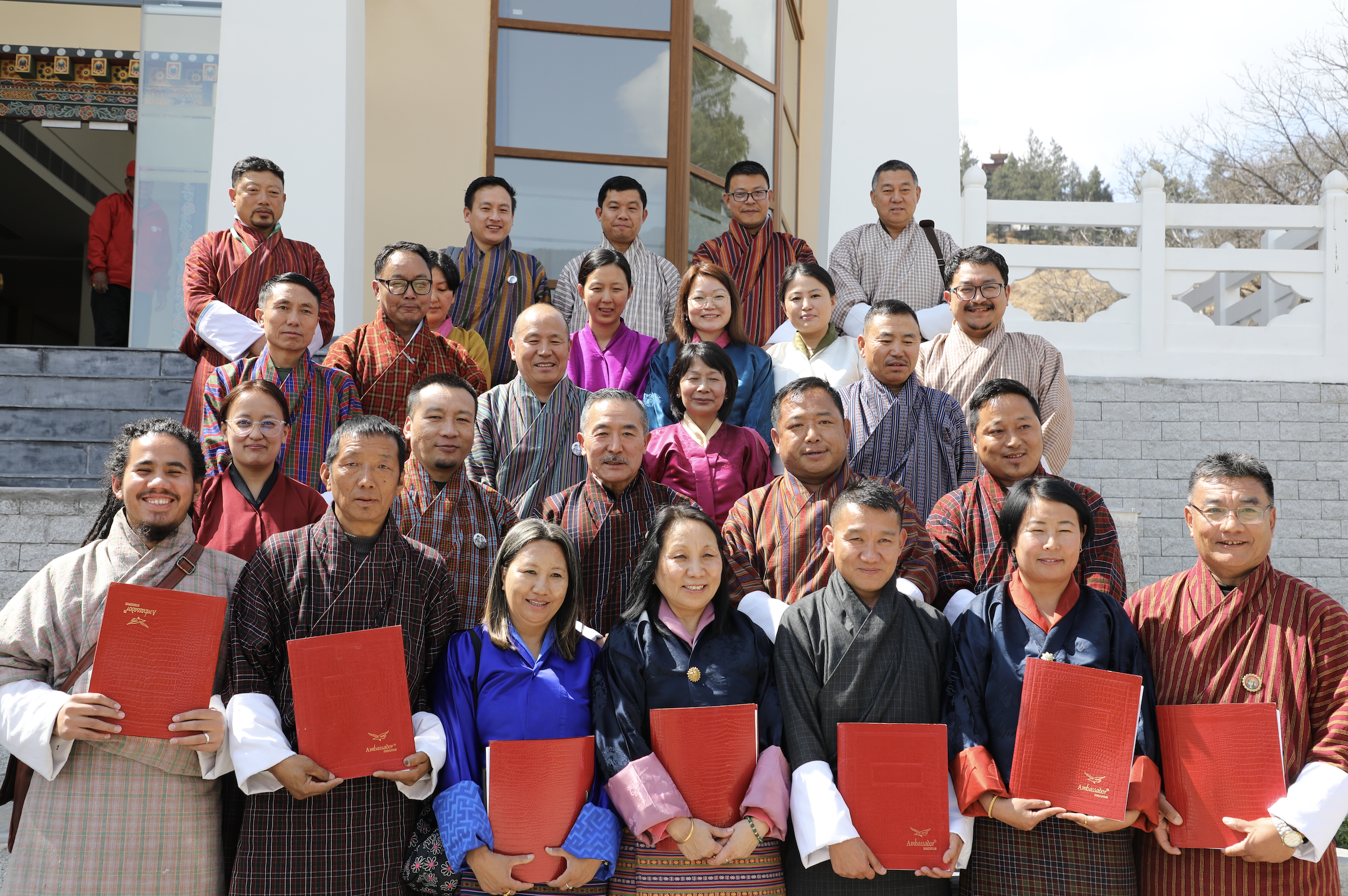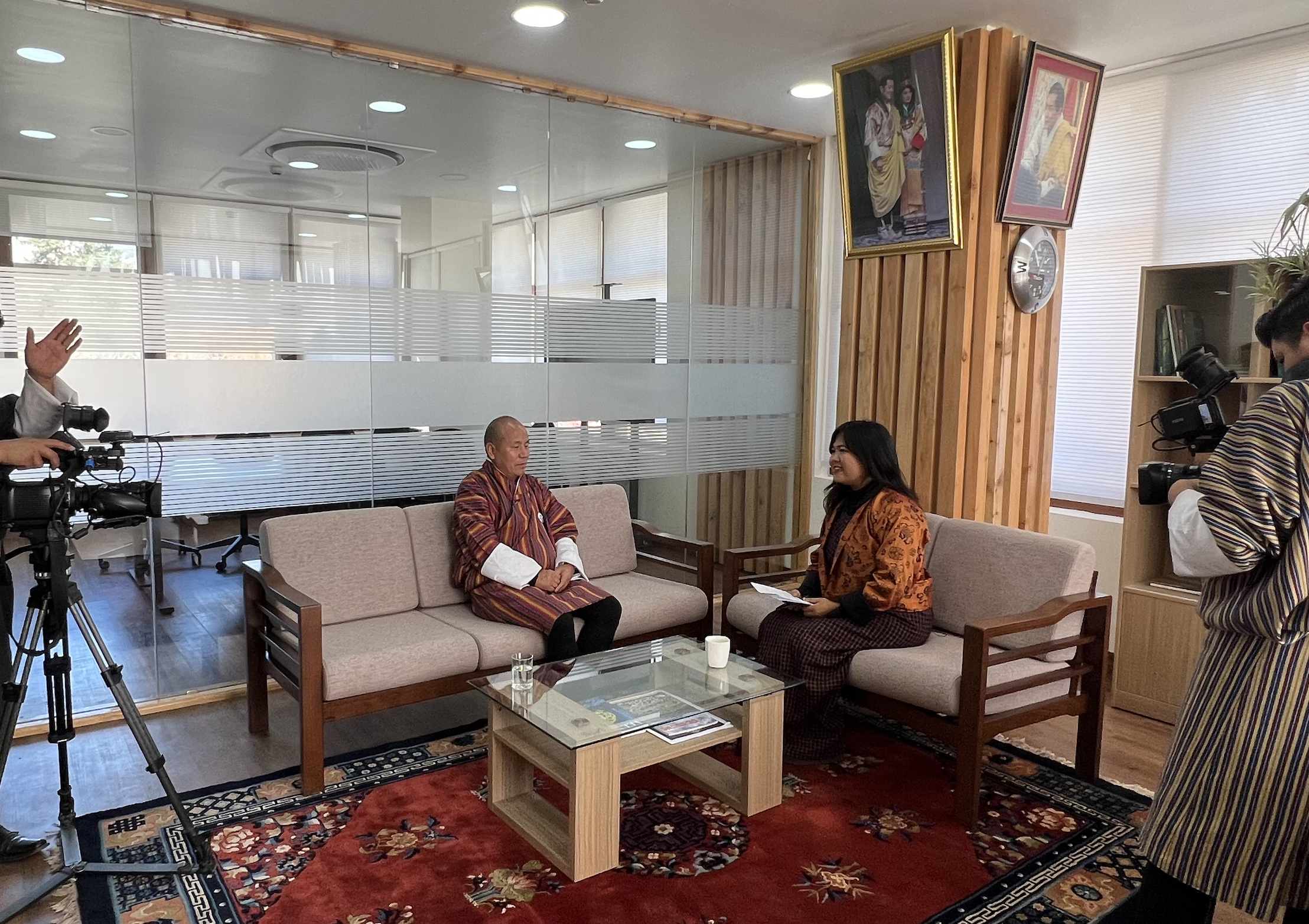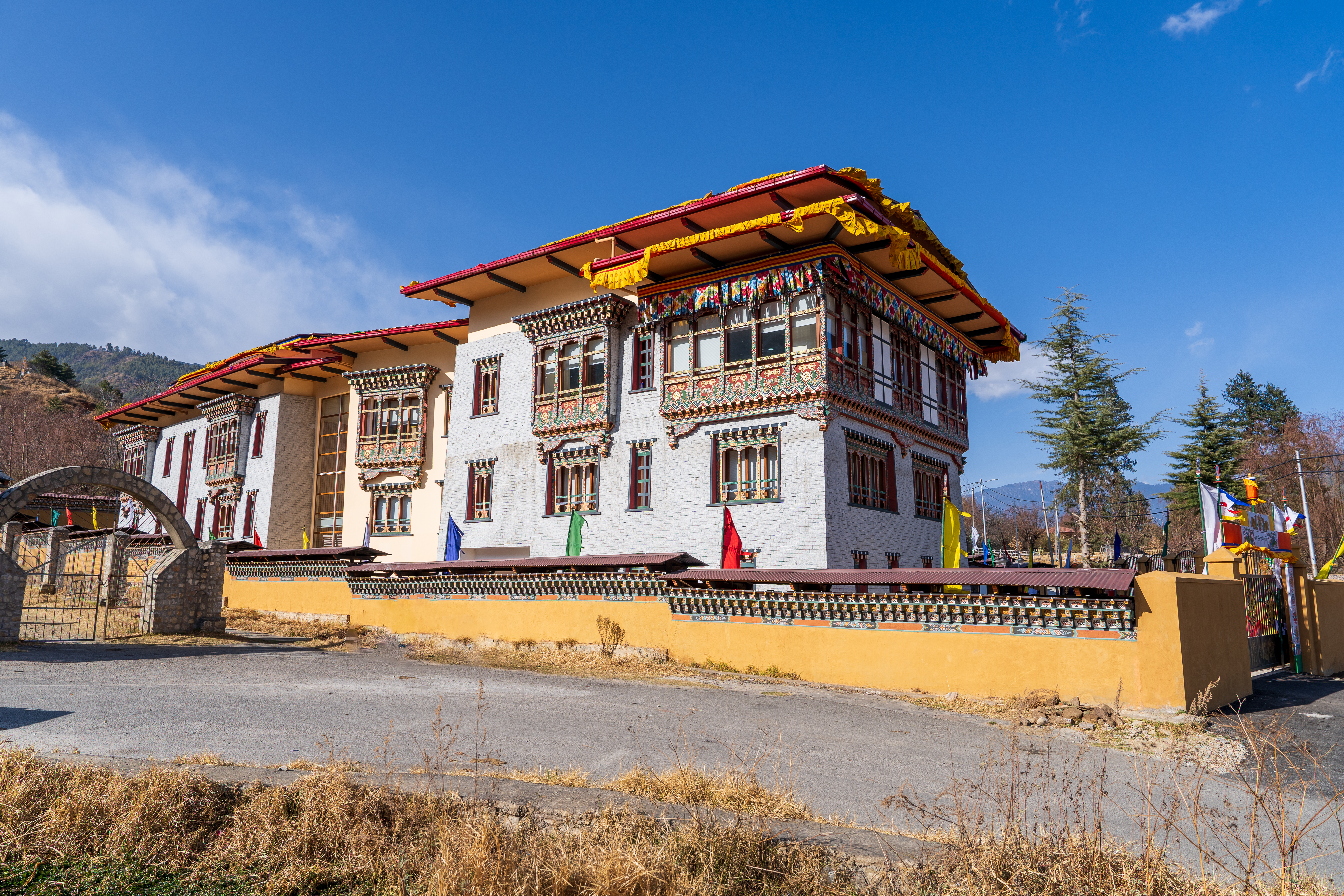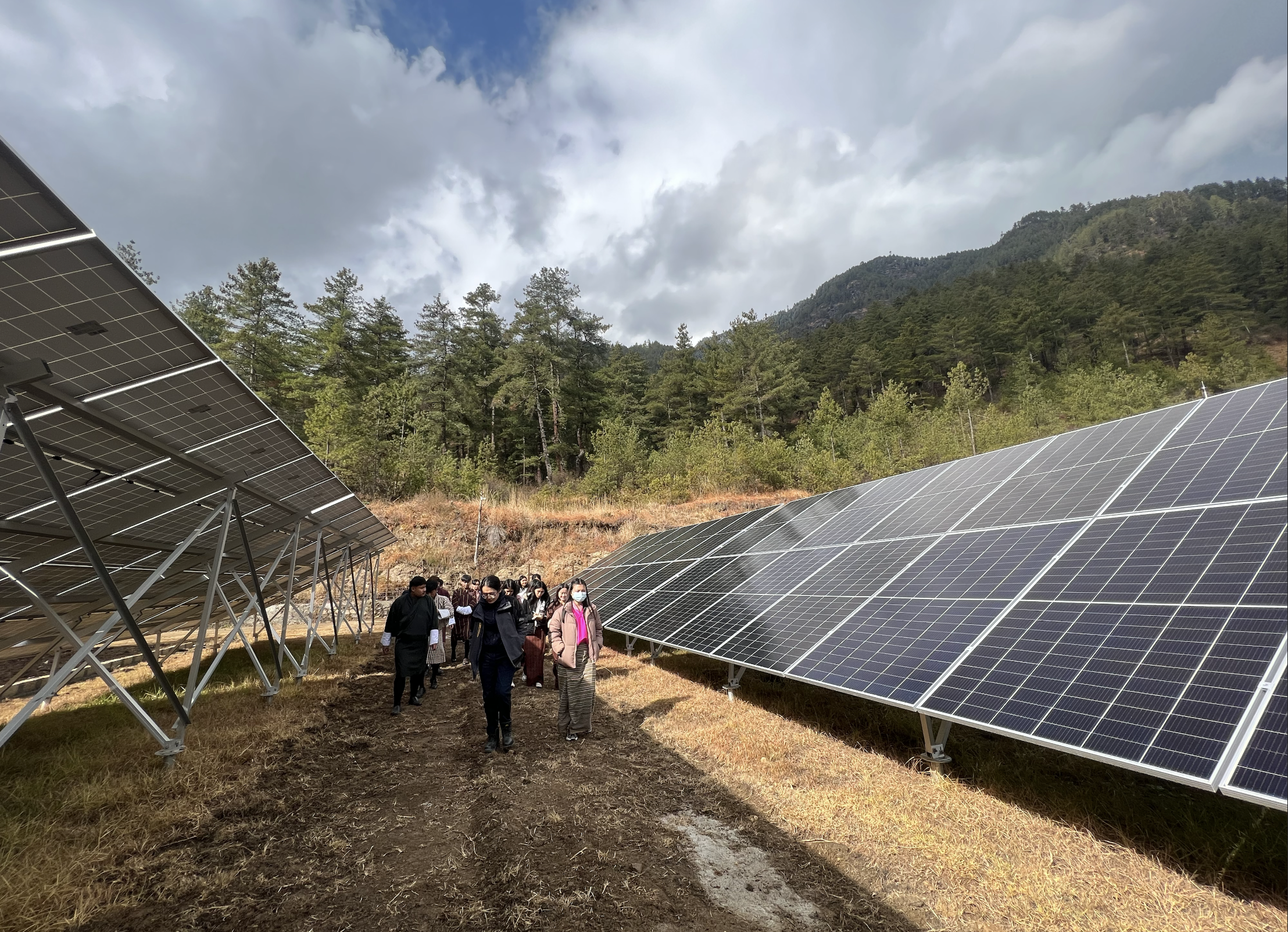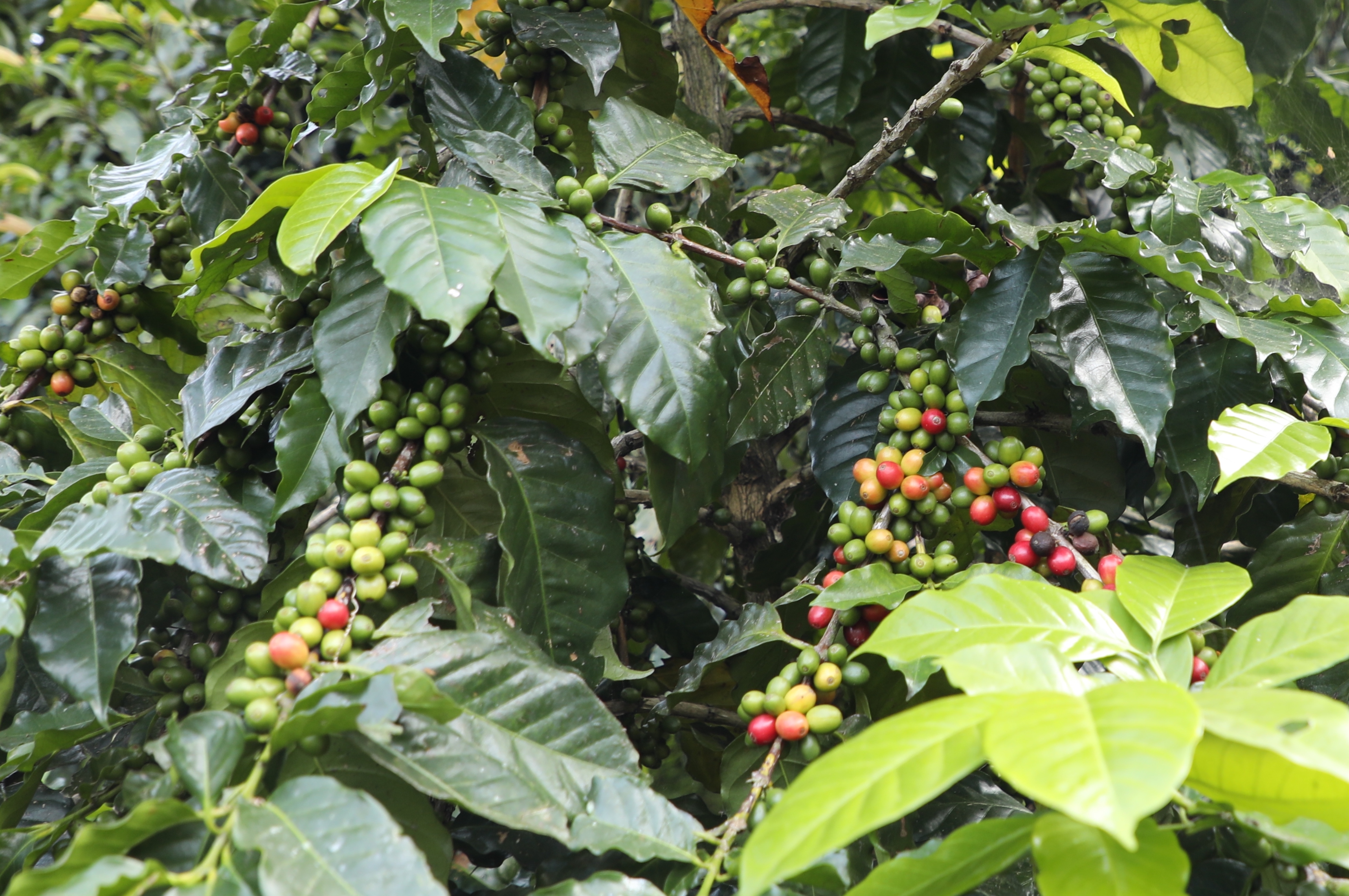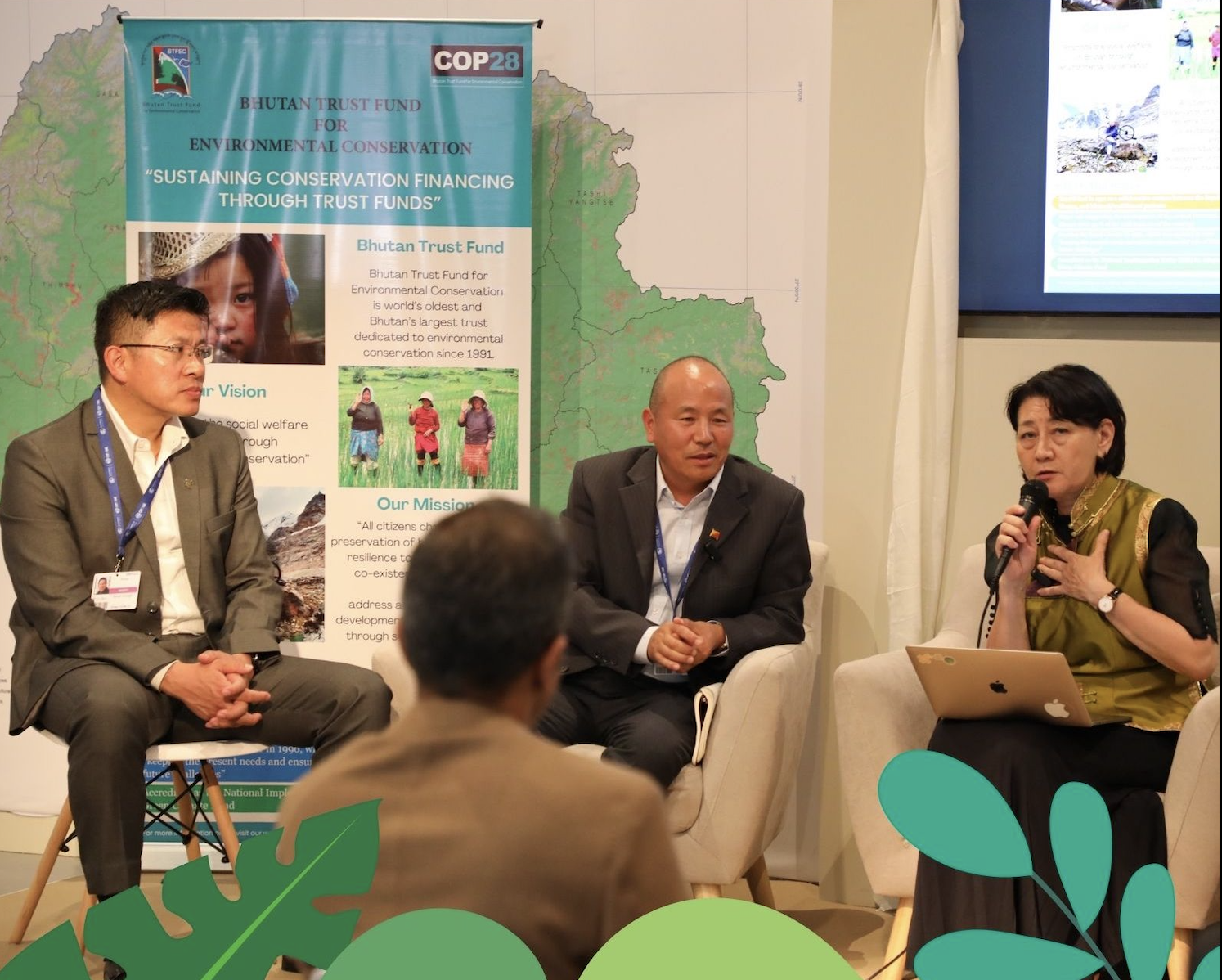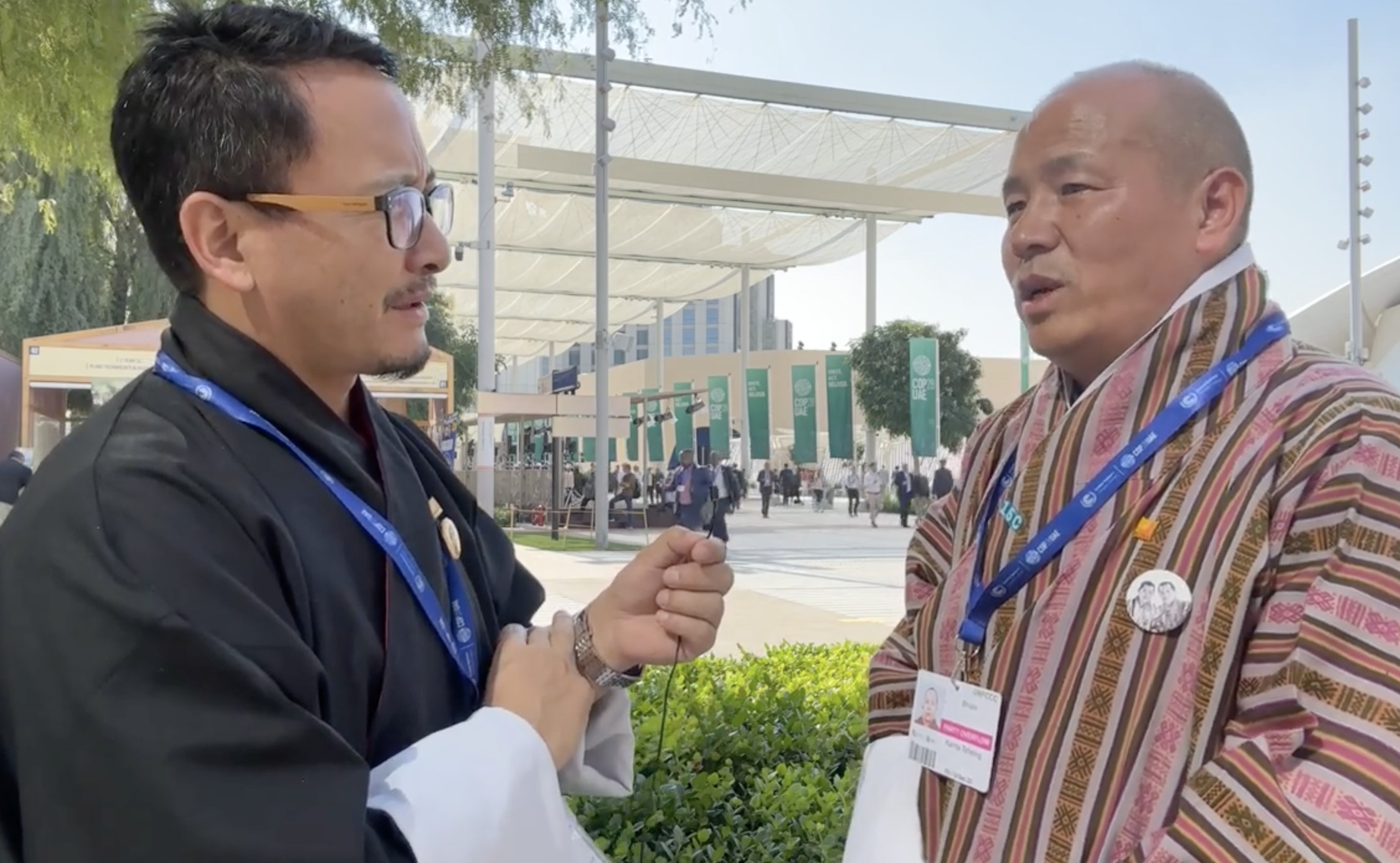
Read our full interview:
An Interview with the Managing Director of BTFEC, Dr. Karma Tshering at COP28
This interview was recorded on 6th December 2023.
Damcho: Kuzuzangpo la, from COP28 Dubai. Dr. Karma Tshering and I are here at COP28 with other colleagues from Bhutan. We are excited to have Bhutan Pavilion as part of COP28 where we can promote Bhutan, not just tourism but also other environmental climate-related stories. It is a good way to showcase about what we can do as a kingdom. Of course, there is a team negotiating day and night on different important topics. I am sure you must have heard and seen in newspaper about the Loss and Damage Fund, that has gone through. I think they call it L&D which is very important for Bhutan as well. This is why we are here, and today, I am delighted to talk to Dr. Karma Tshering about Bhutan Trust Fund, why they are here and what they are doing here.
So, Dr. Karma, a brief introduction about yourself and about Bhutan Trust Fund.
Dr. Karma: My name is Karma and I work for the Bhutan Trust Fund. I have worked for many years for the National Parks in Bhutan. I am a very passionate environmentalist and I am excited to be here because I believe this is the place for climate action, to interact, network with many people who try to endeavor, to bring good changes in this world. I am representing Bhutan Trust Fund, which is the world’s first Trust Fund. I feel very proud to say that, during our Fourth King’s time in 1991, it was established with an endowment of around USD20 million. It has now grown to over USD75 million. Over the years we have pumped in a lot of money into environmental works in Bhutan, so I am basically here trying to see how I can network, build more partnership with international agencies and try to bring more money into our country.
Damcho: I think Bhutan Trust Fund was there when I was a child. It has been there for a very long time, an agency supporting our conservation efforts. Can you tell us, what are some of the projects that BTFEC supported in Bhutan?
Dr. Karma: The Trust Fund was first established in 1991. What we need to know is that Bhutan has dedicated immense areas for Protected Areas, in fact, one of the largest in terms of the size of the country over 52%. Now, when you have dedicated such huge areas for conservation, what you now need is conservation financing mechanism in place. Yes, I was able to get some support from external donors and bilateral countries, but we also need to show that we have our own sources. Over the years, the Trust fund has spent our resources on serving those areas by writing management plans, and building capacity. Now, with changing climatic conditions, we are investing more in environmental awareness, advocating climate action, supporting human-wildlife coexistence and other environmental issues.
Damcho: Why is Bhutan Trust Fund here at COP28?
Dr. Karma: It is so important for us to be here because when we first started our Trust Fund in 1991, we felt we had sort of enough resources to manage our environmental concerns in Bhutan. However, now things are rapidly changing. Unfortunately, we are witnessing a lot of adverse impacts on the environment. We need more resources than ever before. So, the Trust Fund is here to spread our wings, and explore new opportunities. We have to look out for external donors, and networks. We are here to build effective partnerships, come up with good programs, and work together to solve the climate crisis or the biodiversity loss in our country.
Damcho: The other thing about such events is also about the ideas and knowledge you take away from here. So, is this also why you are here?
Dr. Karma: Exactly. As I mentioned earlier, there are a few innovative ideas like, hydrogen fuel, for example. In Bhutan, we only hear about it but here, people are demonstrating how it is done. Similarly, garbage management is one big problem in our country. During my last visit to Korea, I was so fascinated to see how they have machines that automatically segregate all the waste, and recycle them to make bio-fuel out of those waste. So, it is inspiring to know that we might have garbage problems, but we also have solutions. We are here to learn how we can bring better changes.
Damcho: Tell us what is BTFEC doing in Bhutan Pavilion?
Dr. Karma: At the Bhutan Pavilion, we hosted a session on conservation financing to basically tell our story. How we started, and what are the challenges we are facing, and also talk about the partnerships, and the networks that we are in pursuit of.
Damcho: So far, we still have a couple of days to go, but have you met potential any agencies or individuals?
Dr. Karma: We had a meeting with the IUCN, and also ICIMOD. There are also various other environmental organizations here we want to work with in future. We are also looking for any potential partners or networks like even philanthropist, or people who have money, people who run big companies. We hope they come to Bhutan and work with us.
Damcho: What is it that we Bhutanese can do to support Bhutan Trust Fund?
Dr. Karma: I think it is more the other way around. Ever since I have been in the Trust Fund, I have been telling people that Bhutan Trust Fund belongs to all Bhutanese. I have told my office that our doors should always be open to any Bhutanese, regardless of whether he is a student, a senior citizen or someone with no environmental background. We have to try to inspire our people. Coming back to your question, what you can do to support Bhutan Trust Fund is, be an environmentalist and in doing so, if you need our support, we are happy to support you.
Damcho: In terms of the COP28 event, it is such a large-scale event. When we landed at the airport, they gave us free SIM with 1GB internet. You come here; they give you a free metro card to travel. I think it is so well organized with an exception of having to walk about 3 hours sometime to get into the venue because we have a hundred thousand people here attending COP28. So, what are some of the takeaways?
Dr. Karma: Like you have just mentioned that a simple thing like giving away a free SIM, the goodwill you get, the appreciation you feel, and that feeling, this country cares for us. So, for Bhutan, a country known for its goodwill, I think the takeaway is goodwill. How small things that can keep people happy. People who come to Bhutan, we want every guest to go back with that feeling, wow this is a different country. I think to do that we don’t need a lot of money. We just need that right mindset, feel and show that we are concerned and as you know you are in the tourism sector, when we ask people what they like about Bhutan? Yes, we have rich biodiversity, but 90% of people say, it is the lovely people they remember. We have to keep being friendly people. I think that itself is good enough.
Damcho: I think, a lot of people have to know and support Bhutan Trust Fund because it is such long-serving agency, doing a lot of things related to environmental conservation which aligns with our national goal of environmental conservation. So, thank you, and any additional things you want to say?
Dr. Karma: Thank you so much, and as I have said earlier, we have come here on a mission to generate more support for the Trust Fund for Environmental conservation in Bhutan. I am confident that this conference unlike many others that we would just passively attend, here I have been actively attending, and also got request from a few other panel discussions to be in the panel. These are the places we can showcase ourselves as Bhutanese. We are wearing gho (national dress), and it feels good and proud. I think it helps break the ice as people come forward to you to talk. I think that is one lesson learned. Being in national dress is so important for the identity that we have.
Damcho: Thank you Dr. Thank you for speaking to me.
This interview was transcribed by Yeshey Lhamo, Librarian, BTFEC

